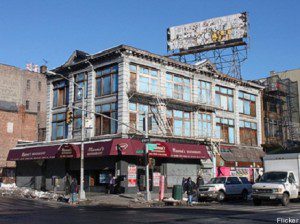The “Occupy” brand is a hit, having embedded its “99%” emblem in the popular consciousness like no other political slogan of the past two generations. And, no wonder. Among the movement’s core non-leaders are the skilled counter-corporate-culturalists of Adbusters magazine, the Canada-based outfit that turns the instruments of mass commercial marketing against their capitalist inventors. Occupy Wall Street flipped the script on the historical subordination of the Many by the Few by symbolically purging the 1% from the righteous community of the rest of us. In hardly the time it takes to “Flick my BIC” – the phenomenally catchy slogan of a classic 1970s ad campaign – Occupy Wall Street has become what some are calling the most significant social movement since the Sixties.
 Only time can validate that assessment, and we shall see if there is still magic in the invocation of the “99%” in the spring and summer. One thing is certain: Occupy can only fulfill its promise to build on the contributions of previous movements if it decisively confronts the overarching issue of race, the Great Contradiction at the heart of American life and history that has always thwarted the development of an enduring Left movement.
Only time can validate that assessment, and we shall see if there is still magic in the invocation of the “99%” in the spring and summer. One thing is certain: Occupy can only fulfill its promise to build on the contributions of previous movements if it decisively confronts the overarching issue of race, the Great Contradiction at the heart of American life and history that has always thwarted the development of an enduring Left movement.
The ultimate measure of Occupy’s capacity to combat white supremacy and privilege, is the degree to which the movement is seen as relevant to people of color – especially Black America, historically the nation’s most dependably progressive constituency and the group situated at the bottom of the economic heap in the current crisis. Black activists and the general African American public are keenly aware that OWS’s essential whiteness was key to its success in establishing encampments of borderline legality, and to the relatively favorable press coverage the movement has garnered. It is axiomatic that immediate and massive police repression would have been deployed to crush any such initiative by Blacks and browns.
White privilege is, of course, a fundamental fact of life in the United States, and understood as such by virtually every inner city Black child above a certain age, although the beneficiaries of privilege are most often blissfully unaware that they belong to a protected class. In the main, Blacks do not hold the existence of white privilege against Euro-Americans that engage in social struggle – indeed, white activists are often admired for risking their privileges. However, Black people do require that white-dominated movements offer the hope of specific impacts on the African American condition. We have learned through bitter and repetitive experience that campaigns advertised as serving the “common good” are no more to be trusted than the racially flawed slogan, “A rising tide lifts all boats.”
The Occupy movement’s “99%” mantra seems inclusive on its face, but can also subsume the aspirations and grievances of the darker constituencies within the super-majority. Therefore, Blacks are compelled to interrogate the movement’s relevance to their own conditions, including gross racial imbalances in relationships of power. At every juncture of the movement’s development, African Americans must be substantively assured of OWS’s relevance to them.


